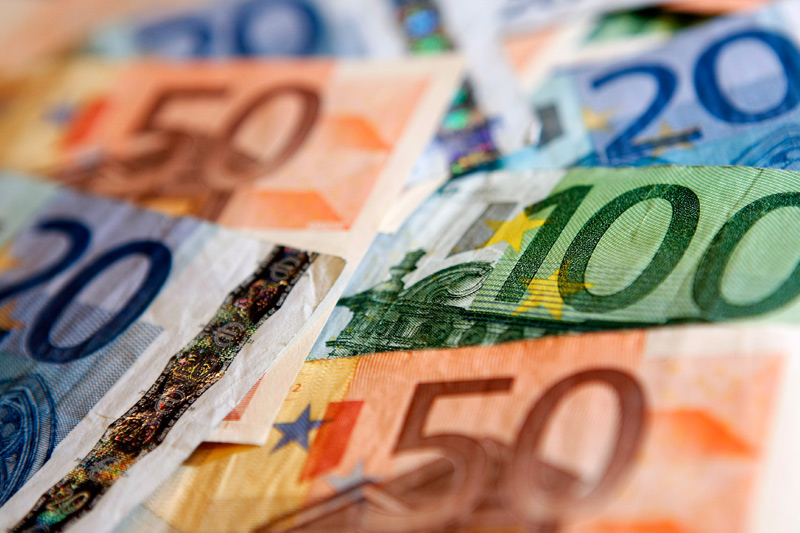Investing.com - The euro came off early highs against its major counterparts on Monday, as sustained concerns over market pressures on Spain and Italy overshadowed relief about Sunday's Greek election results.
During European late morning trade, the euro pulled back from a one-month high against the U.S. dollar, with EUR/USD dipping 0.05% to trade at 1.2632, down from a session high of 1.2748.
The euro posted early gains following a victory for the pro-austerity New Democracy party, as fears over a Greek exit from the euro area eased, but market sentiment softened amid concerns over whether a viable coalition government can be formed.
Elsewhere, the yield on Spanish 10-year bonds surged to 7.11%, rising above the critical 7% threshold which prompted bailouts in Greece, Ireland and Portugal.
The spike in borrowing costs came in spite of efforts to insulate Madrid from the effects of the ongoing sovereign debt crisis by agreeing on a EUR100 billion aid package for Spanish lenders.
Meanwhile, the yield on Italian 10-year bonds ticked up to 6.04% amid fears over sovereign debt contagion from Spain and Greece.
The single currency pared gains against the yen, with EUR/JPY up 0.40% to trade at 99.90, coming off a session high of 100.85.
The euro also trimmed back gains against the pound, with EUR/GBP up 0.23% to trade at 0.8066, down from a session high of 0.8111, but remained little changed against the Swiss franc, with EUR/CHF inching up 0.01% to hit 1.2010.
In the U.K., industry data showed that house price inflation rose 1% in June, following a flat reading the previous month.
The euro was mixed against the Canadian, Australian and New Zealand dollars, with EUR/CAD up 0.19% to hit 1.2937, EUR/AUD down 0.24% to hit 1.2508 and EUR/NZD falling 0.52% to hit 1.5954.
Later Monday, leaders from the Group of 20 nations were to begin a two-day summit in Mexico.
During European late morning trade, the euro pulled back from a one-month high against the U.S. dollar, with EUR/USD dipping 0.05% to trade at 1.2632, down from a session high of 1.2748.
The euro posted early gains following a victory for the pro-austerity New Democracy party, as fears over a Greek exit from the euro area eased, but market sentiment softened amid concerns over whether a viable coalition government can be formed.
Elsewhere, the yield on Spanish 10-year bonds surged to 7.11%, rising above the critical 7% threshold which prompted bailouts in Greece, Ireland and Portugal.
The spike in borrowing costs came in spite of efforts to insulate Madrid from the effects of the ongoing sovereign debt crisis by agreeing on a EUR100 billion aid package for Spanish lenders.
Meanwhile, the yield on Italian 10-year bonds ticked up to 6.04% amid fears over sovereign debt contagion from Spain and Greece.
The single currency pared gains against the yen, with EUR/JPY up 0.40% to trade at 99.90, coming off a session high of 100.85.
The euro also trimmed back gains against the pound, with EUR/GBP up 0.23% to trade at 0.8066, down from a session high of 0.8111, but remained little changed against the Swiss franc, with EUR/CHF inching up 0.01% to hit 1.2010.
In the U.K., industry data showed that house price inflation rose 1% in June, following a flat reading the previous month.
The euro was mixed against the Canadian, Australian and New Zealand dollars, with EUR/CAD up 0.19% to hit 1.2937, EUR/AUD down 0.24% to hit 1.2508 and EUR/NZD falling 0.52% to hit 1.5954.
Later Monday, leaders from the Group of 20 nations were to begin a two-day summit in Mexico.
